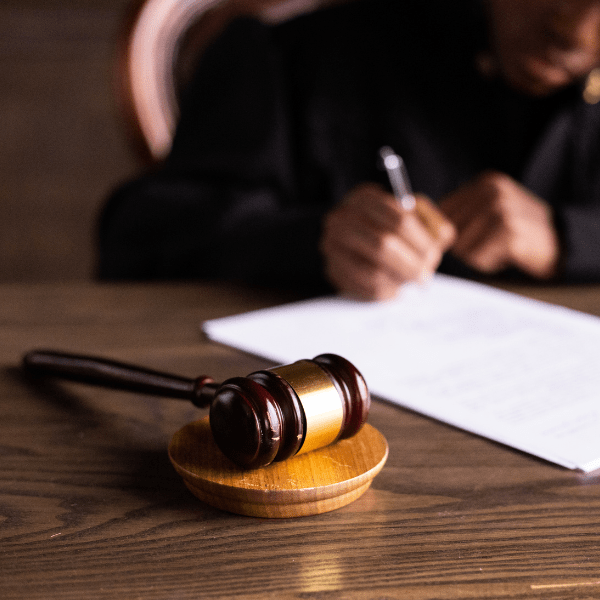As the executor of an estate, you have the important responsibility of making sure the deceased’s last wishes are carried out and that their legacy is shared with their heirs. While this may sound simple enough, many legal steps need to happen throughout the probate process. By following these steps, you’re ensuring that all of the deceased’s wishes are acknowledged and affirmed by the court.
The executor of an estate is responsible for settling the deceased’s affairs. To do this, the executor must perform certain duties on behalf of the court and beneficiaries. This includes collecting the deceased’s death certificate, notifying interested parties of their passing, and distributing assets according to the deceased’s instructions.
Who Is an Executor?
The duties of an executor of an estate involve acting as the personal representative of a deceased individual. They’re also usually named in their will. The executor is typically a family member, although no rule requires this. A friend, attorney, accountant, or even an institution can serve as the executor.
It’s important to note that an executor can decline the role, or the court can determine that an individual is not qualified to serve as the executor. If there is no executor appointed in the will, the state will name a personal representative responsible for administering the deceased’s estate.
What Are The Duties of an Executor?

The duties of an executor of an estate are as much a legal responsibility as a personal one. This is because the executor is in charge of managing the estate’s assets. As you can imagine, a large estate can be much more complex than those on the smaller end of the scale.
Regardless of the estate’s size, there are certain steps you must take to fulfill your duties. These steps are:
1. Collect the Death Certificate
Your first step as executor of an estate is to collect the decedent’s death certificate. It’s best to get multiple copies since they will be needed to perform the duties of the executor in the legal process. If you’re not sure where to get the certificate, the CDC has provided this helpful tool to learn where they can obtain the document.
2. File a Copy of the Will With the Probate Court
You then need to file a copy of the will with the probate court where the decedent lived. If you don’t know where the will is, you can reach out to the family of the deceased or the lawyer who prepared it. The faster the will is filed, the faster you can move on to the other steps.
3. Inform Government Agencies and Other Parties of the Decedent’s Death
For this task, you will need to notify anyone who may have a vested interest in the passing of the decedent, including government agencies such as TennCare and the Social Security Administration. Creditors and beneficiaries should also be notified.

4. Represent the Estate in Court
There are instances where you may need to appear in court on behalf of the estate. This is often only an initial proceeding that lets the probate process move forward with you as executor. However, you may have to return in situations where there is conflict between beneficiaries. A final appearance is required during closing proceedings to finish the process.
5. Open an Estate Bank Account
Opening an estate bank account during the probate process isn’t one of the required duties of an executor, but it’s always a good idea. This allows you to pay estate-related expenses, including mortgages, taxes, final bills, and legal fees.
6. File an Inventory of the Estate’s Assets
While laws can vary from state to state, some require executors to file an inventory of an estate’s assets and liabilities. This provides courts with a clear picture of what has been left behind. In turn, this helps the court distribute the assets properly to the beneficiaries. This step can usually be skipped if the beneficiaries agree upon how the assets should be distributed.
7. Maintain Estate Property Until It Is Distributed or Sold
One of the major duties of an executor is to maintain estate property until it is distributed or sold. This includes ensuring that estate property is found and safely stored until it can be distributed.
8. Pay Any Debts or Taxes Owed by the Estate
It is also your job to pay any taxes or debts related to the estate. This must be done before the distribution process can begin. For some, this will mean filing an income tax return for the estate. Partnering with a tax expert is one of the best ways to work through this step.
9. Distribute Assets to Beneficiaries
Once the above steps are completed, it’s time to distribute the assets to the beneficiaries. They will be outlined in the will, letting you know who gets what. Written permission from the court may be required before proceeding. Be sure to collect documentation from the beneficiaries acknowledging that they have received their share of the inheritance.
Probate in Tennessee
At Johnson, Murrell, & Associates, we understand that the duties of being the executor of an estate can be more difficult than following a list of steps. This is especially true when handling the affairs of a loved one. The legal and financial aspects of administering an estate can be a time-consuming process only made more difficult as you work through your own feelings of loss.
That’s why we do everything we can to help you through this difficult time. Our team of experts is here for you, helping to navigate the legal process. We help shoulder the burdens to make the probate process go as quickly and as smoothly as possible.

The executor of an estate has the important responsibility of seeing through the final wishes of the decedent. This includes meeting certain requirements laid out by the state and enforced by the courts. Requirements include representing the estate in court, filing an inventory of the estate’s assets, paying any debts or taxes owed by the estate, and distributing assets.
When you choose Johnson, Murrell, & Associates, you are choosing a team that understands how legal issues affect you, your family, and your business. Let us take care of administering your loved one’s estate and probating their will so it goes into effect, upholding their wishes. For more information on how we can help you through the probate process call us at 865-453-1091 or contact us here.



